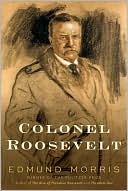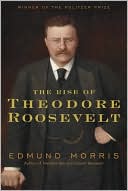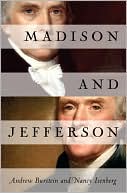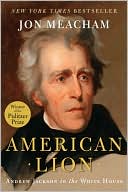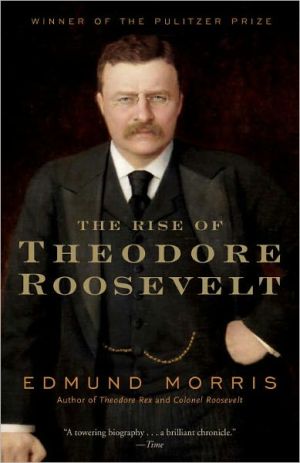Power, Faith, and Fantasy: America in the Middle East: 1776 to the Present
“Will shape our thinking about America and the Middle East for years.”—Christopher Dickey, Newsweek\ This best-selling history is the first fully comprehensive history of America’s involvement in the Middle East from George Washington to George W. Bush. As Niall Ferguson writes, “If you think America’s entanglement in the Middle East began with Roosevelt and Truman, Michael Oren’s deeply researched and brilliantly written history will be a revelation to you, as it was to me. With its cast of...
Search in google:
“Will shape our thinking about America and the Middle East for years.”—Christopher Dickey, Newsweek The Washington Post - Robert Kagan Today, the conventional view is that George W. Bush took the United States on a radical departure when he declared a policy to transform the Middle East and that, as soon as he leaves office, U.S. policy will return to an alleged tradition of realism, rooted in the hard-headed pursuit of tangible national interests. This is both bad history and bad prophecy, as Oren shows in Power, Faith, and Fantasy, a series of fascinating and beautifully written stories about individual Americans over the past four centuries and their contact with Middle Eastern cultures.
Chronology xviiPrologue: A Passage to Glory 3Introduction: Recovering a Pivotal Past 9Early America Encounters the Middle EastA Mortal and Mortifying Threat 17The Hostile and Ethereal Orient 41A Crucible of American Identity 51Illuminating and Emancipating the World 80The Middle East and Antebellum AmericaConfluence and Conflict 101Manifest Middle Eastern Destiny 122Under American Eyes 149The Civil War and ReconstructionFission 177Rebs and Yanks on the Nile 190The Trumpet That Never Calls Retreat 210American Onslaught 228Resurgence 246The Age of ImperialismEmpires at Dawn 257Imperial Piety 273Imperial Myths 297A Region Renamed and Reordered 307America, the Middle East, and the Great WarSpectators of Catastrophe 325Action or Nonaction? 340An American Movement Is Born 351Arise, O Arabs, and Awake! 367The First Middle East Peace Process 376Fantasies Revived 398Oil, War, and AscendancyFrom Bibles to Drill Bits 407An Insoluble Conflict Evolves 420A Torch for the Middle East 446The Middle East and the Man from Missouri 475In Search of Pax AmericanaHarmony and Hegemony 505The Thirty Years' War 550Epilogue: A Profound and Visceral Gratitude 595Afterword 605Notes 613Bibliography 693Acknowledgments 743Illustration Credits 747Index 751
\ From Barnes & NobleFrom today's vantage point, it is easy to assume that America's involvement with the Middle East stems from one of two very 20th-century concerns: our dependence on oil and terrorist threats to our security. However, in this eye-opening survey, Michael Oren (author of the acclaimed Six Days of War) shows that our relationship with the region dates back more than 200 years and has been driven by many other factors, including imperialist strategies, Christian idealism, and the romance of popular culture. Doubly significant for the light it casts on our current political entanglements, Oren's history is an important addition to the literature of foreign policy.\ \ \ \ \ Washington Post Book WorldWhen a brilliant, lucid historian such as Michael B. Oren . . . brings the past back to life . . . it is a shaft of light in a dark sky.— Robert Kagan\ \ \ Robert KaganToday, the conventional view is that George W. Bush took the United States on a radical departure when he declared a policy to transform the Middle East and that, as soon as he leaves office, U.S. policy will return to an alleged tradition of realism, rooted in the hard-headed pursuit of tangible national interests. This is both bad history and bad prophecy, as Oren shows in Power, Faith, and Fantasy, a series of fascinating and beautifully written stories about individual Americans over the past four centuries and their contact with Middle Eastern cultures.\ — The Washington Post\ \ \ \ \ Publishers WeeklyIn this engaging if unbalanced survey, the author of the acclaimed Six Days of War finds continuity in U.S. relations with the Middle East from the early 19th-century war against the Barbary pirates to today's Iraq war. As America's power grew, he contends, strategic considerations became complicated by the region's religious significance, especially to the Protestant missionaries whose interests drove U.S. policy in the 19th century and who championed a Jewish state in Palestine long before the Zionist movement took up that cause. Meanwhile, Oren notes, Americans' romantic fantasies about the Muslim world (as expressed in Mideast-themed movies) have repeatedly run aground on stubborn, squalid realities, most recently in the Iraq fiasco. Oren dwells on the pre-WWII era, when U.S.-Mideast relations were of little significance. The postwar period, when these relations were central to world affairs, gets shoehorned into 127 hasty pages, and the emphasis on continuity gives short shrift to the new and crucial role of oil in U.S. policy making. Oren's treatment views this history almost entirely through American eyes; the U.S. comes off as usually well intentioned and idealistic, if often confused and confounded by regional complexities. Oren's is a fluent, comprehensive narrative of two centuries of entanglement, but it's analytically disappointing. Photos. (Jan. 15) Copyright 2006 Reed Business Information.\ \ \ \ \ Foreign AffairsIn this elegant and engaging overview of U.S. involvement in theMiddle East from the Barbary Wars through the current quagmire in Iraq, Oren, an Israeli historian, explores the peculiar blend of "power, faith, and fantasy" that has guided U.S. policy. From the beginning, there was faith that "God's American Israel" would redeem the Holy Land from Muslim infidels and that the modern world's first republic would inspire the peoples of the Middle East to throw off the yoke of Oriental despotism. There was also fantasy embedded in a popular culture shaped by Thousand and One Nights, nineteenth-century travelogues, and Hollywood feature films, all of which presented the region as "a theater of myth." And finally, there was power, which arrived gradually during the twentieth century as the United States emerged as a force to be reckoned with. Oren makes a compelling case that Woodrow Wilson's ambivalent response to Arab and Zionist calls for self-determination after World War I, Harry Truman's swift recognition of Israel three decades later, and every American response to crisis in the Middle East, from Suez in 1956 through the 1967 Six-Day War to the Islamic upheaval in Iran in 1979, were filtered through these lenses. \ He concludes with a brisk account of the ongoing "Thirty Years' War" with radical Islam. For Ronald Reagan and his successors, faith in the goodness of the United States' intentions has collided repeatedly with fantasies about a region cursed by exotic peoples and evil leaders. The end of the Cold War raised the specter of a "clash of civilizations" between Islam and the West, in which the United States seemed to possess such a preponderance of power that the contradictions between faith and fantasy could be easily resolved by military force. After Osama bin Laden brought down the World Trade Center on 9/11, Washington attempted just such a resolution. Had George W. Bush been able to read this magnificent new book before he launched Operation Iraqi Freedom in March 2003, however, he might well have realized just how dangerous it has been to shoot first and ask questions later in the Middle East over the past 200 years.<\ \ \ \ \ \ \ Library JournalFor more than 230 years, the United States has intertwined itself with the Middle East. Starting in 1776 with the attacks by Barbary pirates on American ships and ending with a discussion of America's current involvement in the region, especially Iraq, Oren (senior fellow, Shalem Ctr.; Six Days of War) does a fine job of showing the circumstances that link our two cultures. As a comprehensive examination of the United States' association with the Middle East, his much-needed book fills a gap in the literature. Oren makes history come alive in the personal stories of famous and not-so-famous Americans and their connection with the Middle East through piracy, slavery, exploration, colonialism, missionary work, diplomacy, political and military issues, culture, tourism, economics, and the extension of such values as democracy and women's rights. This is a wonderfully rich and thought-provoking history, with an extensive bibliography, notes, a chronology, illustrations, and four original maps. Highly recommended for all public and academic libraries. [See Prepub Alert, LJ10/1/06.]\ —Melissa Aho\ \ \ \ \ Kirkus ReviewsAmerican involvement in Middle Eastern affairs is hardly new-and, writes historian Oren (Six Days of War, 2001, etc.), mostly "graced with good intentions."The Middle East-a term, Oren notes, coined by an American admiral a century ago-was a subject of intense interest across the waters in the early days of the Republic, thanks in good measure to the work of Mediterranean privateers who pressed American sailors into slavery. Add to that the natural strangeness of the Arab world, and, writes Oren, for Thomas Jefferson the region was "a bastion of infidel-hating pirates as well as a realm of exotic wonders." Thus it would remain, at least until the piracy problem was attended to. The slavery problem was another matter, and Oren takes up a rewarding theme by examining the uses to which it was put in American abolitionist circles. In decades to come, fast ships would carry Americans across the sea in great numbers. Some made the heart of the Middle East part of the Grand Tour, some made the Holy Land an object of pilgrimage and its inhabitants one of proselytism; and some saw in the region a source of commerce and wealth, even before the discovery of oil. Interestingly, as Oren explores in detail, many travelers of all stripes tended to be anti-imperialist, regarding British designs on the region as a problem, even if Harper's magazine did opine that "Civilization gains whenever any misgoverned country passes under the control of a European race." That proto-neoconservative declaration is one of many parallels that the reader can reasonably draw between then and now. Oren suggests that much American activity in the Middle East, from Red Cross founder Clara Barton's intercession on behalf ofbesieged Armenians to the work of hydrologists and agronomists in making Palestine fertile ground, was benign. When it was not, it had unpleasant consequences, as with the machinations of one anti-Semitic ambassador and the present messy stage of what Oren calls the "thirty years war" following the seizure of the American embassy in Tehran. Of considerable interest in that difficult time: well argued, and full of telling moments.\ \

